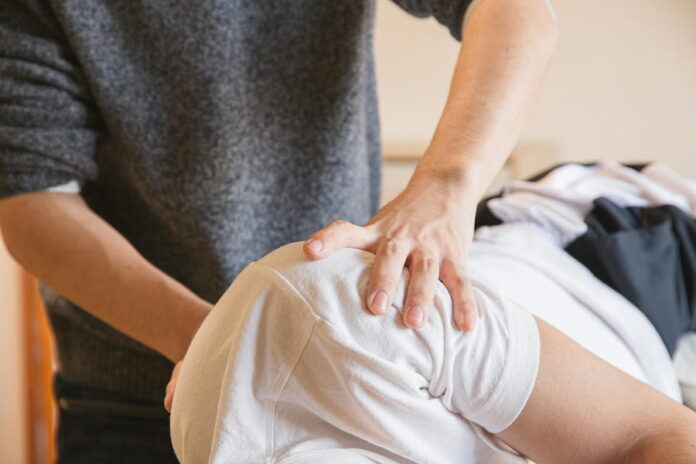Living with PTSD, or Post Traumatic Stress Disorder, can be tough. People who have gone through a lot of difficult situations in their lives have to deal with more than just troubling memories. The lasting effects can negatively impact every part of a person’s life, from the moment they wake up in the morning to the moment they put their head down on their pillow.
PTSD sufferers need healthcare that doesn’t just address clinical symptoms, but also keeps underlying trauma in mind. This is what trauma informed care is all about. It’s an approach that’s much more sensitive because it considers a person’s troubled past and keeps the whole person in mind during a healing process.
What is it?
People living with PTSD need help that’s more gentle and healthcare professionals who understand the value of whole-person healing. Instead of asking “what’s wrong with you?”, care that keeps trauma in mind asks “what happened to you?”. This approach is sensitive to the fact that bad experiences can stay with a person physically and emotionally for a long time. It focuses on creating a supportive and safe space where patients can feel comfortable talking about the trauma they’ve been through.
When a patient feels safe and heard, they can begin to shift their perspective away from the bad things that happened to them and give all of their attention to healing instead.
Making whole-person healing work
For whole-person healing to be successful, healthcare professionals need to learn how to be more understanding of every individual patient’s past circumstances. With workshops and specialized training, medical doctors, nurses and aides can become better at treating patients in a more gentle and sensitive way.
Right now, medical environments aren’t properly structured to provide this kind of trauma-informed care. This means that a lot needs to be done in hospitals and other healthcare settings. It also means that many PTSD sufferers aren’t currently getting the level of help or understanding they probably need.
Organizational changes will undoubtedly take a long time to put into practice as policies and practices are updated. The progress being made is valuable though. Encouraging a medical culture of empathy and non-judgment will help individuals with PTSD and many other patients currently dealing with anxiety and other kinds of psychological distress.
Benefits of trauma-informed care
By taking the harsh reality of many people’s lives into account, trauma-informed care aims to provide vulnerable individuals with the help they need in a way that doesn’t end up triggering or traumatizing a person further. In practice, this would make medical environments more compassionate and better suited for recovery.
For people with PTSD and many others, this kind of care goes beyond just managing symptoms. It helps people understand how their past experiences might be getting in the way of their healing process and gives them the tools they need to take control of their lives and get better.
Overall
At the end of the day, trauma-informed care, with its focus on whole-person healing, can give people the hope they need to take an active role in their recovery. It’s a much more sensitive way of thinking that brings a person’s past experiences into the conversation and empowers sufferers to take control of their trauma.
Did you find this helpful? Check out our other helpful articles on our website.
Read Also
- Achieving a Defined, Balanced Facial Contour in SingaporeA well-defined jawline and a gently tapered lower face — commonly referred to as a V-shaped face — is a look many people aspire to. In Singapore’s beauty and aesthetic scene, treatments that help refine facial contours have grown in popularity as more individuals seek subtle, natural enhancements that boost confidence and balance facial features.… Read more: Achieving a Defined, Balanced Facial Contour in Singapore
- The Wellness Blueprint: How Your DNA Holds the AnswerGenetic testing is revolutionizing preventive healthcare by offering insights into individual health risks. By analyzing DNA, these tests provide a personalized health blueprint that can guide lifestyle and medical decisions. This approach, often referred to as DNA wellness testing, helps to optimize health naturally and prevent potential diseases. In recent years, genetic testing has become… Read more: The Wellness Blueprint: How Your DNA Holds the Answer
- Exploring the Benefits of Infusion Therapy in OKC: The Ultimate GuideUnderstanding Infusion Therapy: A Deep Dive into Its Purpose and Process What exactly is Infusion Therapy? Infusion therapy is an advanced medical treatment that delivers medication and nutrients directly into the bloodstream through a vein, typically via an IV (intravenous) line. This method is particularly beneficial for patients who require a concentrated dose of medication,… Read more: Exploring the Benefits of Infusion Therapy in OKC: The Ultimate Guide
- Ketamine-Assisted Therapies: Impacts on Employee WellbeingWorkplace stress is common today. Many employees feel tired, anxious, or burned out. Regular therapy can help, but some people need more support. Ketamine-assisted therapy is showing good results for mental health. A ketamine-assisted therapist guides each session safely. This therapy can improve mood, focus, and energy. Learning more about it can help teams stay… Read more: Ketamine-Assisted Therapies: Impacts on Employee Wellbeing
- The Future of Men’s Health: Why Telehealth Is Here to StayTelehealth isn’t just a pandemic trend that faded into the background. For Australian men, it has become one of the most practical, time-saving, and stress-free ways to manage everyday health — and it’s shaping the future of how we access care. Platforms like DOCTO, an Australian online doctor and specialist telehealth service, are leading the… Read more: The Future of Men’s Health: Why Telehealth Is Here to Stay
- How to Build a Simple, Clean Skincare Routine ?You don’t need a complicated skincare routine. It doesn’t have to be something that requires twenty different products and confusing steps. Your routine works well with just a few high-quality clean ingredients. The beauty industry keeps pushing more products, but your skin actually needs less. You only need a simple approach to get better results… Read more: How to Build a Simple, Clean Skincare Routine ?
- How Preventive Dental Care Supports Overall HealthHave you ever wondered how a simple dental checkup could impact your entire body? Oral health is more than just a bright smile. Studies show that poor dental habits can contribute to serious health problems. Gum disease and tooth decay are linked to heart disease, diabetes, and infections. Yet, many people overlook preventive dental care.… Read more: How Preventive Dental Care Supports Overall Health
- Seeing Clearly in a High-Tech World: A Deep Dive into Advanced Vision Care ServicesProtecting your eyesight isn’t optional—it’s essential. Modern eye care has evolved far beyond basic exams, offering advanced diagnostics, personalized treatments, and surgical innovations that keep vision sharp for life. A leading example is Intermountain Eye Center, home to specialists like Dr Fishburn Boise, where patients receive comprehensive, high-level vision care designed to preserve long-term eye… Read more: Seeing Clearly in a High-Tech World: A Deep Dive into Advanced Vision Care Services









